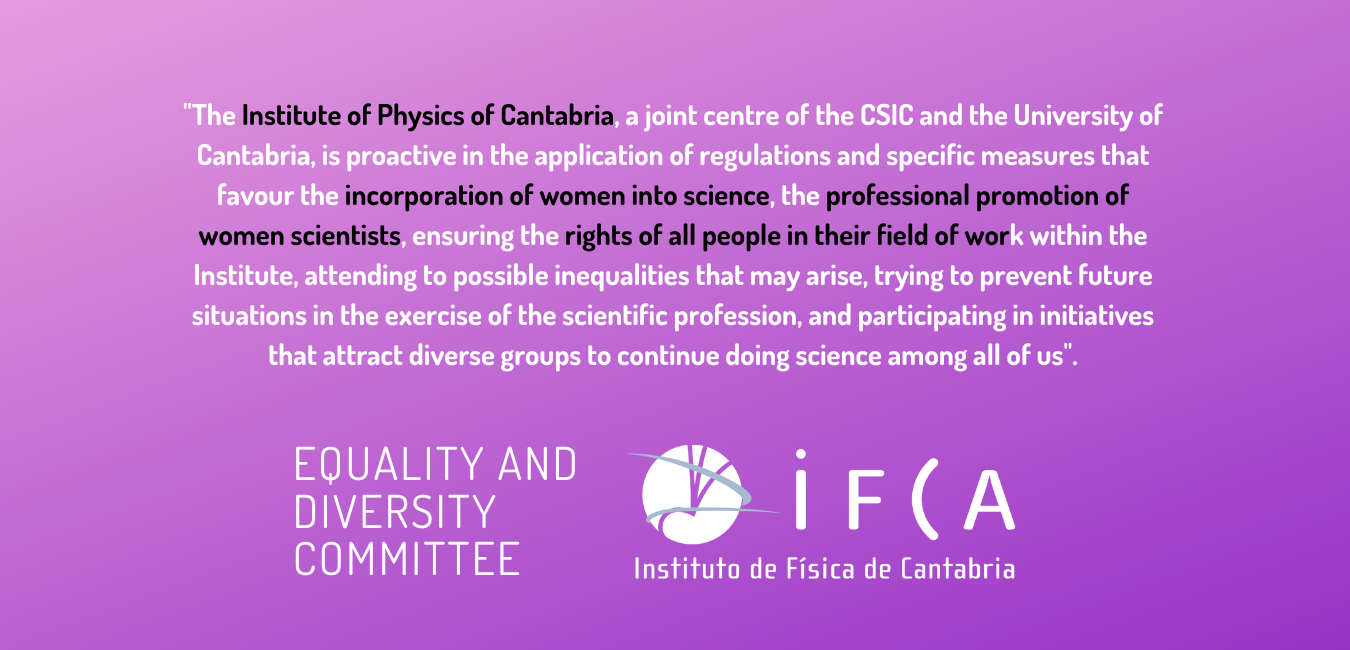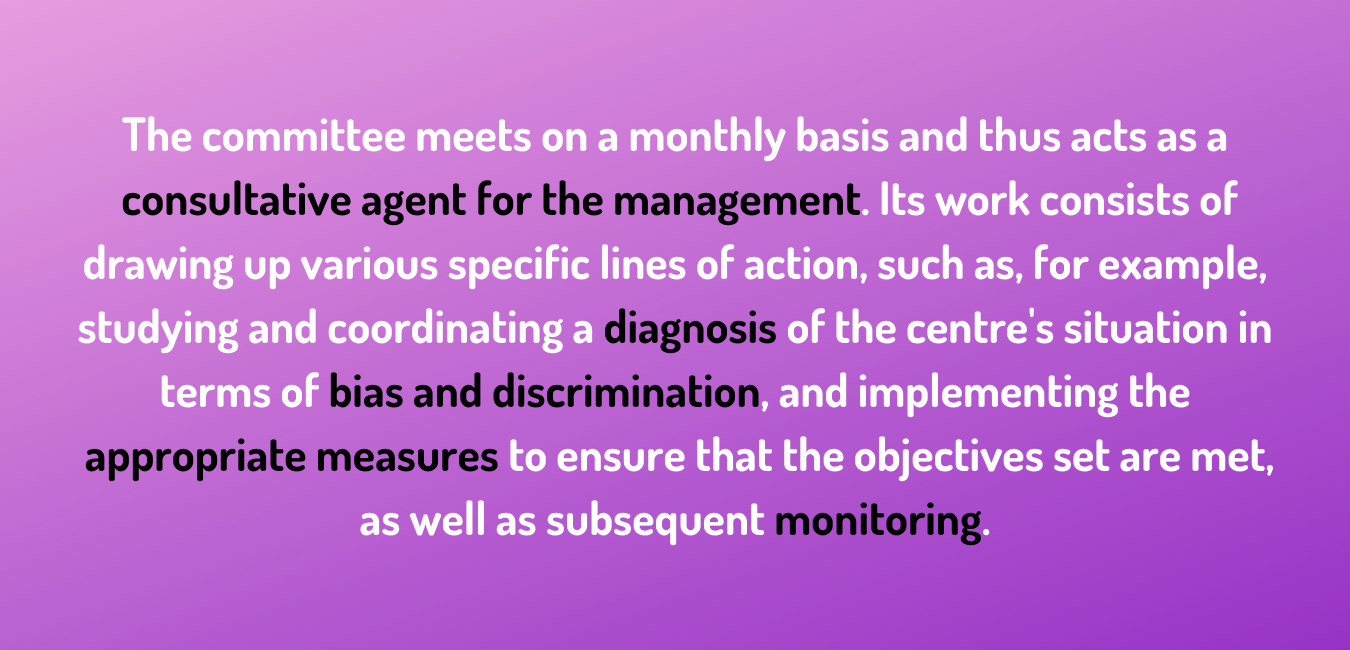
If you would like to
report any cases of inappropriate behaviour,
make suggestions for future action by the IFCA Equality and Diversity Committee, or to
communicate directly with our team, you can contact the committee in the following ways:
- Email:
comisiondiversidad@ifca.unican.es
- Drop your message in an
anonymous box that you will find at the entrance of the centre.
IFCA's Equality and Diversity Committee
Prior to the creation of the commission, the IFCA staff, under the direction of Teresa Rodrigo Anoro, was aware of the need to address equal opportunities between women and men within the institute and also towards society. For this reason, gender equality actions began to be developed, focusing on aspects of dissemination and institutionalisation of initiatives and with special interest in the early stages of education. This led the centre to obtain the second prize of the
Distinction of Equality awarded by the CSIC in 2018. However, the IFCA staff was aware that, despite the involvement of its members in equality and diversity policies, situations such as the 'glass ceiling' or the 'sticky floor', among others, continue to affect women in their professional careers and must be monitored for their correction and real overcoming.
For this reason,
the IFCA management decided to create in 2020 the Equality and Diversity Commission of the Institute of Physics of Cantabria, formed by a group of volunteers from all levels of the IFCA (students, contract staff, technical staff and scientists): Rocío Vilar (researcher and president of the Commission), Jónatan Piedra (teacher and researcher), Silvia Martínez (researcher), Maite Ceballos (researcher), Judith Sáinz-Pardo (researcher), Rebeca García (dissemination), Diego Herranz (teacher and researcher), Lissette Graafland (researcher) and Rosa Domínguez (researcher), Koushika Vaiyapuri (researcher), Josipa Milovac (researcher) and Maialen Iturbide (researcher).

Its creation also responds to the desire to
include the gender perspective in the daily development of the Institute's scientific work (covered by the María de Maeztu seal of excellence), and in line with the Institute's forthcoming organisational plans. We have also endeavoured to create materials for
equality education in the area of
STEM careers, specifically in Physics, Mathematics and Computer Science. With these initiatives we want to extend our
focus to primary, university, pre- and post-doctoral education of young women researchers to help them to continue in scientific careers without getting lost through the holes in the "
leaking pipeline" and to be able to reach positions of responsibility like their peers.
Another workhorse of concern is
gender stereotypes, which are deeply embedded in patterns of thinking. As a particular case we can cite motherhood, which is still perceived as an obstacle for women (see
CSIC's Women Researchers 2020 report on the loss of women scientists in the period coinciding with motherhood), although there are many others that are more difficult to determine and detect. In this regard, discussions are underway to identify internal actions to improve the
conciliation of work and life outside academia in a balanced way. Protocols for the problem of gender-based violence and harassment in the workplace are also being addressed.
The implementation of all these initiatives at IFCA is always within the legal framework of the CSIC and UC regulations.
